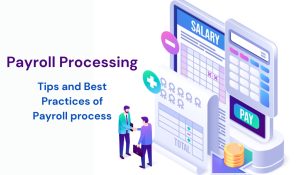Unlocking Financial Efficiency: The Power of Tax Best Practices Consulting
In today’s dynamic and increasingly complex global economy, navigating the labyrinth of tax regulations can be a daunting task for businesses of all sizes. From ever-evolving local and international tax laws to intricate compliance requirements, the potential for missteps and missed opportunities is significant. This is where “Tax Best Practices” consulting services become an indispensable asset, empowering organizations to not only minimize their tax burden but also to enhance overall financial health and strategic decision-making.
A specialized Tax Best Practices consulting service goes far beyond simple tax preparation. It offers a proactive and holistic approach, aiming to embed optimal tax strategies and robust compliance frameworks within an organization’s core operations. This translates into tangible benefits, such as:
1. Strategic Tax Planning and Optimization:
Tax best practices involve moving beyond a reactive, year-end tax filing mindset. Consultants delve into a company’s business model, operations, and future objectives to develop tailored tax strategies. This includes:
- Understanding and Leveraging Tax Incentives: Identifying and utilizing applicable tax credits, deductions, and subsidies (e.g., R&D credits, investment incentives) that can significantly reduce tax liabilities.
- Optimizing Business Structures: Advising on the most tax-efficient entity structures (e.g., corporations, partnerships, LLCs) and optimizing existing structures through mergers, acquisitions, or restructurings to minimize tax implications.
- International Tax Strategy: For businesses with global operations, consultants help navigate double taxation agreements, transfer pricing, and foreign profit taxation to optimize tax obligations across different jurisdictions.
- Long-Term Tax Forecasting: Conducting tax sensitivity and future scenario analyses to anticipate how economic shifts and regulatory changes might impact a company’s tax position, enabling proactive adjustments.
2. Robust Compliance and Risk Mitigation:
The consequences of non-compliance can be severe, ranging from hefty penalties to reputational damage. Tax Best Practices consulting is crucial for ensuring adherence to all tax regulations and minimizing audit risks:
- Staying Up-to-Date on Legislation: Tax laws are in constant flux. Consultants provide continuous monitoring and interpretation of new regulations, ensuring businesses remain compliant.
- Accurate Record-Keeping and Documentation: Implementing streamlined processes for documenting all financial transactions, expenses, and receipts to support tax filings and withstand scrutiny during audits.
- Internal Controls and Governance: Establishing strong internal audit and tax control processes to identify and mitigate tax risks, ensuring transparency and accountability in tax practices.
- Audit Readiness and Representation: Preparing organizations for potential tax inspections and, if necessary, representing them in communications and proceedings with tax authorities.
3. Enhancing Operational Efficiency through Technology:
Modern tax practices are increasingly reliant on technology to improve accuracy, efficiency, and real-time visibility. Consultants guide businesses in:
- Adopting Advanced Software: Implementing and optimizing tax software, accounting tools, and automation solutions (including AI and Machine Learning) to streamline tax calculations, financial reporting, and compliance processes.
- Cloud-Based Systems: Transitioning to cloud-based financial management systems that automate transaction categorization, track project-level profitability, and flag potential compliance issues proactively.
- Data Analytics: Utilizing tax analytics to gain deeper insights into financial data, enabling forward-looking analysis, identifying cash savings, and simulating the impact of changes.
4. Elevating Financial Literacy and Confidence:
A key aspect of Tax Best Practices consulting is empowering internal teams. This involves:
- Training and Education: Providing workshops and ongoing training to finance teams and executives on tax management, compliance, and the impact of tax decisions on overall financial health.
- Proactive Advisory: Moving beyond reactive responses to tax questions, offering proactive advice and insights that help businesses make informed financial decisions throughout the year.
In essence, a Tax Best Practices consulting service transforms tax management from a necessary burden into a strategic advantage. By proactively addressing tax complexities, optimizing financial structures, ensuring stringent compliance, and leveraging cutting-edge technology, businesses can unlock greater financial efficiency, minimize risks, and ultimately, achieve their long-term growth objectives with confidence. Engaging with expert tax consultants is no longer a luxury but a fundamental component of sound business practice in today’s intricate fiscal landscape.







